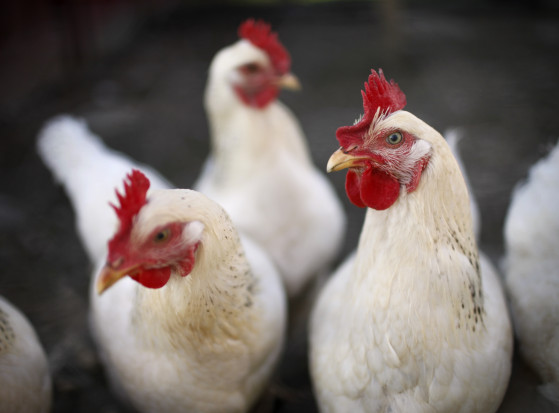On August 2nd, McDonald’s ran full-page print advertisements in major newspapers to announce that its outlets are now selling chicken free of medically-important antibiotics, an important gain for public health. A number of major chicken producers responded to McDonald’s decision and have pledged to phase out antibiotics in their production plans. In the advertisement, the fast-food giant notes other progress made, including the removal of corn syrup from the breads and buns it serves.
Prior McDonald’s announcements triggered major changes in animal welfare policies throughout the food retail sector—reverberations that are still playing out every day. Around four years ago, McDonald’s announced it would phase out its purchase of pork from operations that confine sows in gestation crates. About 100 major brands have followed suit, promoting major moves away from crates by pork producers. And, ten months ago, McDonald’s announced with The HSUS that it will eliminate its purchase of eggs from hens confined in cages. Since that time, nearly 200 major food retailers—just about every big brand in fast food, grocery, family dining, and food service—has followed suit. We believe that these pledges, when fully phased in, will account for about 90 percent of all eggs sales in the United States. Collectively, it’s such a mass movement that it essentially guarantees the end of the era of cage confinement, and allows the United States to skip past larger cages (known as colony cages) and move to cage-free as the minimum standard. In fact, just today, US Foods, the second largest food distributor in the nation, announced that it was going cage-free. Two weeks ago, Publix, the biggest outlier in the grocery sector, committed to the same. The roster of companies getting on board gets longer by the week.

McDonald’s has been leading the way in adopting more humane animal welfare policies; unleashing competitive pressures that will bring down the curtain on cage confinement in American animal agriculture. Photo by iStockphoto
In my book, The Humane Economy, I give McDonald’s enormous credit for leading on these issues and unleashing competitive pressures that will bring down the curtain on cage confinement in American animal agriculture. That movement has been swift and rather extraordinary, after 60 years of steadily increasing concentration and intensive confinement of animals in the egg, pork, and veal industries. The practices that became customary in the agribusiness sector are increasingly seen as disgraceful, and there’s now a definite and irreversible effort to get animals out of crates and cages in the years ahead. Massachusetts voters are expected to approve a ballot measure in November to assure that, after a five-year phase-in, there are no animal products sold in the state that come from factory farms that immobilize animals and deny them the ability to engage in some basic behaviors.
There’s one area where McDonald’s can take additional action. It can join Burger King, Wendy’s, Denny’s and countless other restaurants in offering a good-tasting plant-based option for its customers. Today, more than ever before, health-conscious and animal-friendly consumers—whether vegetarian or not—are opting for plant-based meals. Products like veggie burgers are now on the shelves of every major grocer, and they’re offered, or about to be offered, at the outlets of major McDonald’s competitors. They’re also on the menu at White Castle, Chili’s, Subway, and so many other big brands. For these companies, it’s just a matter of catering to the diverse palates and value systems of customers. For McDonald’s, a company with more than 25,000 stores and millions of customers every day, it’s especially important to cater to a range of tastes.
So, many thanks to McDonald’s for its recent series of major announcements on animal welfare and public health and good nutrition. In the spirit of continuous improvement, we hope to see some new full page ads coming soon with its announcement that it’s offering up a tasty, nutritious, fully animal-friendly burger at all of its outlets.
The post McDonald’s and the quiet revolution in food and agriculture appeared first on A Humane Nation.
Enviroshop is maintained by dedicated NetSys Interactive Inc. owners & employees who generously contribute their time to maintenance & editing, web design, custom programming, & website hosting for Enviroshop.
